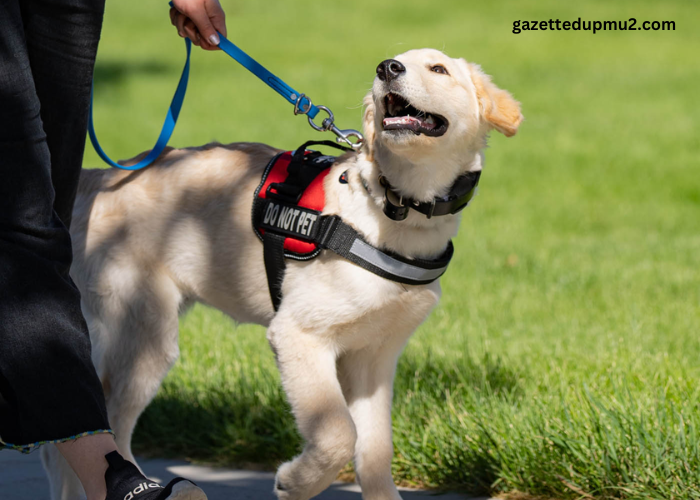When faced with wildlife intrusions, Cleveland residents often grapple with a crucial decision: should they attempt a DIY solution or enlist professional help? While do-it-yourself methods may seem cost-effective, they often lack the expertise, safety protocols, and legal knowledge necessary for thorough animal control. Ineffective handling of wildlife can result in recurring infestations, property damage, or even legal trouble. By contrast, professional pest control in Cleveland offers long-term solutions tailored to the unique needs of local homes and communities.
Effectiveness
1. Comprehensive Inspections
One of the biggest advantages professionals bring to the table is their ability to conduct thorough inspections. They don’t just address the obvious signs of wildlife, such as droppings or chewed wires—they dig deeper to uncover nests, hidden entry points, and structural vulnerabilities. This level of detail allows them to devise a plan that eliminates the root cause of the problem. By contrast, DIY efforts often rely on surface-level observation, which can miss key factors and leave your home vulnerable to repeat infestations.
2. Advanced Techniques and Tools
Professionals have access to tools and techniques that go far beyond what is available to the average homeowner. These include infrared cameras to detect hidden nests, ultrasonic repellents, and humane exclusion devices that block animals from reentering your home. DIY approaches often rely on traps or over-the-counter repellents, which might temporarily deter wildlife but fail to prevent their return. The advanced methods used by professionals ensure that the solution is not only immediate but also sustainable.
3. Customized Solutions
Wildlife infestations are never one-size-fits-all. A raccoon in the attic requires a very different approach than a squirrel infestation in the walls or a bat colony in the roof. Professionals evaluate each case individually, taking into account factors like the type of animal, the structure of your home, and the extent of the problem. This level of customization leads to long-term results, whereas DIY methods often employ generic fixes that may not address the specific needs of your situation.
Safety Concerns
1. Physical Injuries
Attempting to trap or remove animals without proper training can result in serious injuries. Wildlife, when cornered or threatened, may lash out in self-defense. Squirrels can bite, raccoons may claw, and larger animals can cause even more severe harm. Professionals are trained to handle these situations safely, using protective gear and humane tools that minimize risks to both humans and animals. Without this training, homeowners are putting themselves in harm’s way.
2. Exposure to Diseases
Many wild animals carry diseases that can be transmitted to humans, such as rabies, leptospirosis, or hantavirus. These diseases pose significant health risks, especially when animals are mishandled or their droppings are improperly cleaned up. Professionals have the necessary equipment, such as gloves, masks, and disinfectants, to manage these risks. Homeowners without access to such tools may unknowingly expose themselves and their families to harmful pathogens.
3. Property Damage
Improper handling of wildlife can escalate the problem, leading to further property damage. For example, an animal trapped in a wall might panic and chew through wiring, insulation, or plumbing in an attempt to escape. Professionals use techniques that avoid causing additional damage, ensuring that the removal process is both safe and effective. Homeowners, on the other hand, may unintentionally worsen the situation by using improper traps or techniques.
Legal Compliance
1. Permits and Licensing
Cleveland has specific laws regarding the capture, removal, and relocation of wildlife. These regulations are designed to protect both humans and animals, ensuring ethical treatment and minimizing environmental disruption. Professionals are familiar with these laws and hold the necessary permits to perform animal control legally. DIY efforts, while well-intentioned, may inadvertently violate these regulations, resulting in fines or legal complications.
2. Humane Practices
Many wildlife laws mandate humane treatment during removal and relocation. For example, certain traps and methods may be prohibited due to their potential to harm animals. Professionals adhere to these guidelines, using humane techniques that comply with local and state laws. DIY methods, such as using unapproved traps, might unintentionally harm animals, leading to potential legal and ethical issues.
3. Knowledge of Protected Species
Some animals, such as bats or certain bird species, are protected by state or federal regulations. Attempting to remove these species without proper authorization can result in hefty fines. Professionals can identify these protected species and handle them in accordance with the law, ensuring compliance while protecting Cleveland’s wildlife ecosystem.
Tips for Residents
1. Assess the Severity of the Problem
For minor issues, such as a single squirrel in the attic or a small wasp nest, DIY solutions might be sufficient if handled carefully. However, larger infestations or encounters with potentially dangerous animals, such as raccoons, bats, or snakes, should be left to professionals. The size and complexity of the problem are key factors in determining whether DIY efforts will suffice.
2. Consider Safety Risks
If there’s any risk of injury or disease transmission, it’s best to involve a professional. For example, handling a potentially rabid animal or cleaning up droppings from rodents that carry hantavirus poses significant health hazards. Professionals have the training and protective equipment needed to manage these risks safely.
3. Understand Legal Requirements
If you’re uncertain about the legalities of handling certain animals or using specific removal methods, it’s safer to call a professional. They ensure that all actions are compliant with Cleveland’s animal control laws, reducing the risk of fines or legal trouble.
Conclusion
Wildlife intrusions are a common challenge for Cleveland residents, but they demand careful handling to ensure safety, effectiveness, and compliance with local laws. While DIY methods might offer quick fixes, they often fall short of addressing the root causes of infestations and pose risks to homeowners and wildlife. Professional animal control Cleveland Ohio, offers comprehensive solutions prioritizing long-term results, safety, and legal compliance. By understanding the benefits of professional services and recognizing when to seek expert help, residents can protect their homes, health, and peace of mind.





